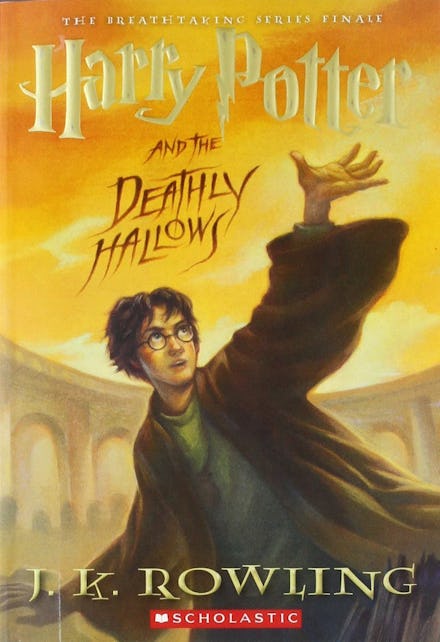5 Novels Every Atheist Can Believe In

There are many books out there that explore religious themes and appeal to the religiously-inclined amongst us. But what about readers who don't believe in such things?
Well, there are actually quite a few novels that appeal to the secular crowd as well. Here are five books that atheists and agnostics are sure to love.
1. 'His Dark Materials' by Philip Pullman
"Atheism for kids." That's what the Catholic League called Philip Pullman's young-adult fantasy series, His Dark Materials. And that's likely true. It is to atheists what The Chronicles of Narnia is to Christians.
The series follows Lyra as she traverses parallel universes and fights against numerous assailants. The main antagonist, however, is the Authority. Pullman describes the Authority as the first figure being in the world after it was formed. Thus, in the series, the Authority is seen as a god: the oldest, most authoritative figure who banishes those who rebel against him. Pullman's world is not one where religion doesn't exist, but, rather, one where the myths of religion are challenged, and where the dark side of religion is explored.
In essence, Pullman's series is about the death of god, and what it would mean for religious institutions if the deity no longer exists — all of this in a children's book.
2. 'Saturday' by Ian McEwan
Ian McEwan's 2005 novel doesn't seem overtly atheist. The novel follows a neurosurgeon through the course of one Saturday in London during one of the largest anti-Iraq War protest in Britain. However, upon closer look, the novel is rife with themes that would appeal to many atheists.
McEwan is a staunch atheist himself. He's spoken numerous times on the subject. In Saturday, he uses narrator Henry Perowne as a mouthpiece for his own sensibilities. Perowne, like McEwan, is a confirmed atheist who believes in the ingenuity of human invention above all else.
Atheists are drawn to this novel and others by McEwan because he explores a secular world without harping on religion. Instead, he chooses to focus on the motivations of an atheist protagonist while imbuing the story with optimism. It's atheism for the next generation.
3. 'Catch-22' by Joseph Heller
Joseph Heller's seminal classic may seem like a simple story about the evils of warfare, but there's more to it than that. Many have noted that it also seems to be a story about the existence of god. The titular catch is that in order to prevent getting killed in action, the protagonist Yossarian must pretend to be insane. But, his fear of being killed in action proves he is sane.
Similarly, by believing in god, one also admits his existence is impossible to prove. The novel tackles this necessary uncertainty. And then there is the fact that Yossarian is an atheist. He makes the classic claim of theodicy: he cannot believe in a god that has created so much human suffering.
"There's nothing so mysterious about it. He's not working at all. He's playing or else he's forgotten all about us." Yossarian proclaims.
4. 'The Handmaid's Tale' by Margaret Atwood
The Handmaid's Tale is seen as great feminist writing. However, it is also a book that explores many themes to which atheists can relate. It is essentially a story about the subjugation of women in a dystopian future. What sort of society would allow such a thing? Why a theocracy of course.
In Margaret Atwood's novel, religion is used as a means of controlling society and oppressing certain aspects of it. Many have also noted that the oppressive republic, Gilead, has several biblical stories forming the society's mythology. This is not meant to be some hypothetical world either. Atwood was very much inspired by the state of society in the late 20th century. Like Pullman, she uses the story to critique what she sees as wrong with growing religious fanaticism. While it may not be overtly atheist, it does critique societal norms, including religion.
5. 'Harry Potter' by J.K. Rowling
While it's not as subversive as His Dark Materials, the Harry Potter series is rife with material over which atheists salivate. Most notably, the wizarding world seems to be free from religion. Some worship at the feet of Voldemort; however, there is no mention of an organized religion, or a god, for that matter.
Magic can be seen as a higher power, but there is never a discussion about where magic comes from. It just is. This also leads to an absence of clearly defined good and evil — morals are not founded by a creator, but by the witches and wizards themselves. As Sirius Black says, "We've all got both light and dark inside us. What matters is the part we choose to act on. That's who we really are." What I love most about Harry Potter is that, even without god, characters make sacrifices for one another, and lead their lives according to a code — not a religious one, but a human (or wizarding) one.